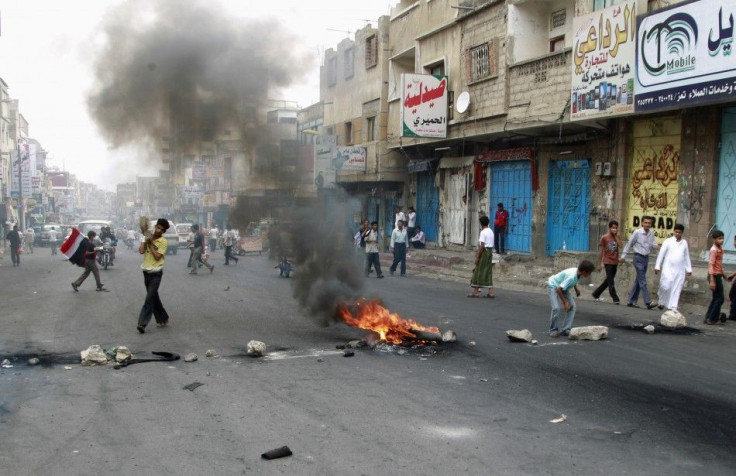CIA Preparing Yemen Drone Strikes

The Central Intelligence Agency is set to launch a campaign of unmanned air strikes against al Qaeda militants in Yemen who have become increasingly assertive as chaos has engulfed the country, the Wall Street Journal reported.
Popular protests in Yemen have spiraled into sectarian violence and paralyzed the government, forcing President Ali Abdullah Saleh to leave the country and seek medical treatment in Saudi Arabia. American intelligence officials are watching the situation closely, concerned that militants are exploiting the situation to seize towns in the southern part of the country.
They're looking to take advantage of an opportunity that has arisen, a U.S. intelligence official said of the recent movements in the south. Whether they're going to succeed or not is an open question.
The U.S. military has relied on Saleh's quiet cooperation to carry out a campaign of airstrikes against militants -- a diplomatic cable leaked by Wikileaks detailed how Saleh provided cover by claiming the strikes were carried out by his own military, quoting the president as saying We'll continue saying the bombs are ours, not yours. But Saleh's political future is uncertain, and the U.S. has no guarantee that a new government would lend the same level of support.
In the meantime, the CIA is planning a covert program, authorized last year, to what is seen as a substantial and growing threat from Al Qaeda's Yemen outpost with drone strikes. The radical American-born cleric Anwar al-Awlaki, whose assassination has been authorized by President Obama, is a key figure there.
According to the Wall Street Journal article, the CIA program would likely broaden the scope of American efforts in Yemen by making it simpler to target suspected militants. The CIA would be able to justify strikes based on a pattern of life that links Yemenis to Al Qaeda.
While the program was conceived before Yemen descended into chaos, the current situation represents an opening.
Obviously, as things fall apart in Yemen, and the central government is not doing this job, the operational space for unilateral military operations gets bigger and bigger, said Christopher Boucek, a Yemen expert with the Carnegie Endowment in Washington.
© Copyright IBTimes 2024. All rights reserved.











